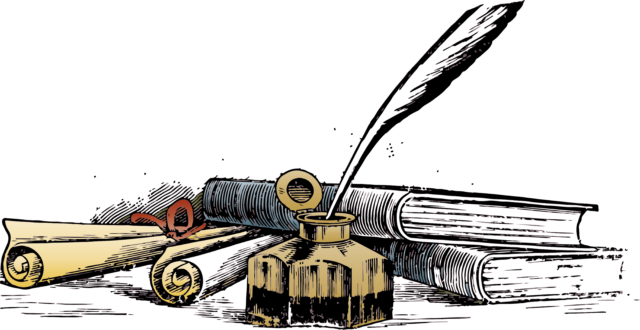The Plague – La Peste
November 16, 2017 by admin_name

The Plague – La Peste
written by Albert Camus
https://www.ink2quill.com/
“The Plague” is a novel written by the French novelist Albert Camus and published in 1947. Other famous works of his include “The Stranger” and “The Fall”. He won the Nobel Prize in literature in 1957 and died in a car accident in 1960. This novel is very well written with themes that are not only timeless but relevant today. When I read Jose Saramago´s novel called “Blindeness” I saw elements of “The Plague” in the story. When I look around at the societies of North America and Europé today I see societies that could benefit from the wisdom in this novel. It´s a powerful story because it is subtle and the characters are caught in a vice that will grind them down.
“The Plague” is the story of a plague that sweeps across North Africa and hits the narrator´s town of Oran in French Algeria. There is a narrator telling the story but I have to say that the main character is the plague itself. Yes the very epidemic itself. When the pague first hits town some people have their suspicions that a serious problem will only get worse but the mood remains optimistic. The people are basically in denial and that does not help things one bit. As the story progresses things only get worse and the town of Oran has to finally accept that they have an epidemic on their hands.
This is more than just the story of an epidemic. It is also a metaphor for a society being engulfed by a great evil, like the nazism and other fascisms that swallowed Europé whole in the twentieth Century and left hundreds of millions dead in its wake. You have a terrified people from all walks of life where each individual is looking for a way out of their nightmare and looking for ways to cope with a situation bigger than them. Like the character of Cottard who profits from the disaster through criminal activities or Raymond Rambert who tries to escape and see his wife. These are people from all walks of life with different intentions. And like so many good novels like “A Tale Of Two Cities” and Homer´s “Odessey” (just as some examples) I loved the way the story began. I loved the foreshadowing of the rat that runs up and then falls over dead at the very beginning of the story.
This is the story of a place under seige and a people under the stress of occupation. True, that it is not military occupation but it is an occupation nonetheless. The Palgue does represent a military occupation with the fear, scarcity and people turning on each other in different ways. This enemy, however, is invisible and cannot by physically fought or seen. It is perceived only through ita effect and that makes the situation seem that much more hopeless. Some might say, in more modern terms, that this is very much the prison situation in storytelling where a group of people are stuck in a bad situation and must figure their way out or deal with being stuck. This is a theme that, if done right, reveals so much about ourselves and were unlikely heroes can crop up. The meek grocery store worker for example in the film The Mist.
I think that if we look at society today and learn our lessons from the story we will resist the urges to discriminate against certain populations of people and will reject the option of waging an all out war on communities in our society that are not our own. Let´s hope that the days of slavery, concentration camps and unlawful deportations are far behind us. I really liked this book and I think that everyone should read it.
This is a literary classic for very good reasons. It´s so well written for starters. Albert Camus was such a good writer and that is not an obvious skill these days. The themes of the story are another reason. The themes are as relevant today as when it was when it was publihed in 1947. Back then the problems plaguing Europe and the world were fascism,warfare and Nazism.
So, pick up The Plague and enjoy yourself a good literary classic.
Written by John
Comments
Comments are closed.


